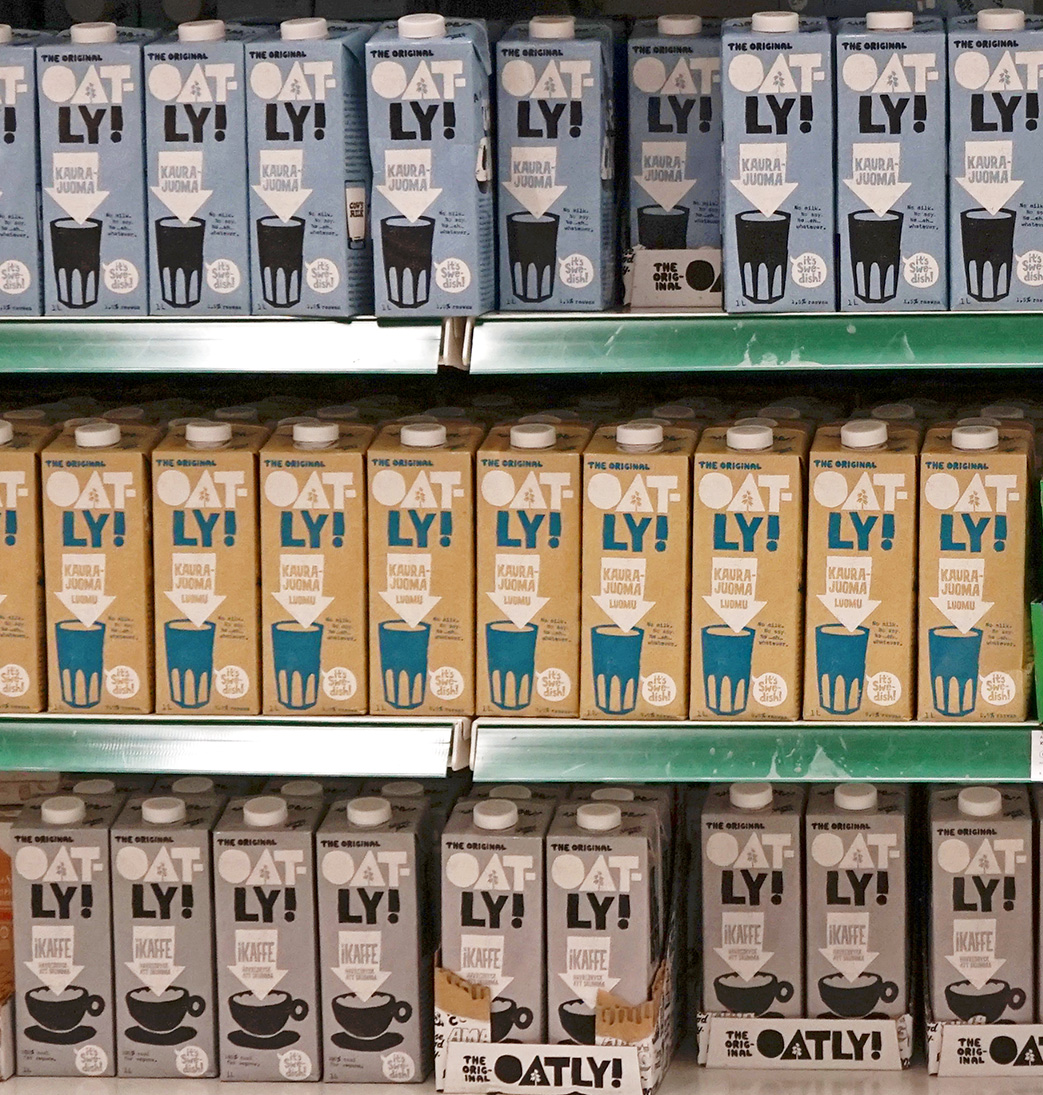I recently found myself let down by a brand that I always thought could be trusted to lead by example through sustainable and ethical practices. Yet, once again, another brand has disappointed its customers in the face of controversy. In July, innovative oat drink producer, Oatly, sold a 10% stake of the company to private equity firm, Blackstone.
Oatly was developed in the 1990‘s by researchers at Lund University, since then it has become extremely popular in Sweden with a range of products such as Oat Milk, Oatgurt, ice cream, and even oat-based crème-fraiche. Perhaps what is most interesting about the brand is its packaging. Oatly spares no feelings when calling out the dairy industry and rightly so. It is no secret how harmful producing cow’s milk is for the planet, not to mention the effects on the animals involved in the process. With this in mind, it should not be surprised when its customers have decided to shame Oatly on social media because of the decision it has made to enter into a partnership with Blackstone.
I use the word partnership lightly, Oatly has responded to backlash over the 10% stake that Blackstone now holds by arguing that it can now steer its investor’s decisions towards sustainable investment and claims that it will drive capital away from investment in companies contributing to the climate crisis. The fact that Oatly is just a $200m investment out of the $184bn private equity assets Blackstone currently holds under management, this statement comes across slightly delusional.
Playing devil’s advocate, by expanding its geographical presence and promoting alternative products to dairy, Oatly is therefore supporting a movement towards sustainable consumption. However, why then has it chosen Blackstone as an investor. Blackstone Group partially owns a company turning the Amazon Rainforest into farmland which has contributed to harmful acts such as mass deforestation. Additionally, CEO of the group, Steve Schwartzman donated a large sum to Trump’s super PAC. Both these acts surely go against the beliefs of both the company and the majority of its customers. For ethical consumers, the investment from the firm is conducive to committing the acts itself.
Having not yet made the decision to be publicly listed, presumably for reasons such as dilution of ownership and misalignment of interests, the choice of private investor again seems confusing. Although Oatly has made some attempt to demystify this decision, unfortunately it does not suffice as a reasonable justification. Consequently, many customers are leaning towards other brands, or even homemade oat milk due to the lack of faith in the industry.
This leads to a question that hovers over every organisation’s head, is there such a thing as sustainable growth? There are many benefits to the expansion of a business, the most obvious being economies of scale and an increased consumer base which, perhaps most importantly, often lead to higher profit levels. Oatly would probably be lying to deny these are significant factors in their business model. However, as a company founded in Sweden, one of the most environmentally progressive countries in the world, a major part of their organisation’s story is the push for a large-scale transition towards a sustainable food system.
Oatly has not shied away in admitting in their most recent sustainability report that their sustainability figures are not what they had hoped for, as the expansion has resulted in increased transportation and use of more resources. In addition to this, many of the new production partners were unable to provide the same renewable energy solutions at their plants. Clearly, trying to break its way into new markets has had somewhat of an adverse effect on the message that they want to pervade throughout the market. The message that people should be able to eat and drink products that are good for them without exhausting Earth’s resources. Deforestation is the exact opposite of that.
Like most growing companies, the goal of being ‘big’ often collides with ethical practices.
Global growth for Oatly’s products grew 65% in 2018, it would be unsurprising if those figures aren’t much higher now as the desire for plant-based products increases. Oatly acknowledges moving towards globalisation can be a resource-intensive task and attempted in their 2018 Sustainability report to explain how the company would address these issues. Unfortunately, expansion is a pernicious task and the decision to sell a part of its ownership to Blackstone has not done it any favours in that regard.
If Oatly is to succeed in its mission of promoting a transition from dairy to alternative milk, it will have to be as innovative as it was in developing its initial product. Failure to do this will lead to its customers losing faith in both the company and its message.
On the other hand, Oatly may be safe until a better alternative presents itself. For now, it will bask in its achievement of being the best of a bad bunch.

